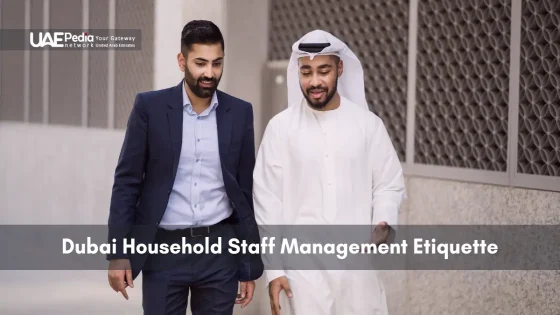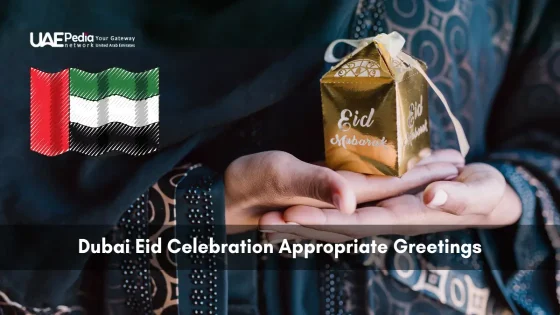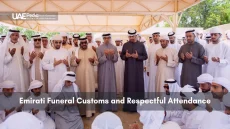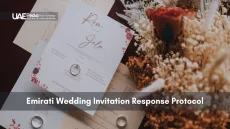What if creating harmony at home isn’t just about what you ask, but how you approach it? In a city where tradition meets modernity, building positive relationships with those who keep households running requires cultural awareness and thoughtful practices.
This guide explores the unwritten rules of collaborating with home support teams. Think of it as a blueprint for fostering mutual respect—one that honors both legal standards and the human element behind daily tasks. Whether you’re new to the region or refining existing routines, these insights help bridge expectations smoothly.
Local frameworks ensure everyone’s rights align, but success often hinges on the small gestures: clear communication styles, understanding time-off customs, or celebrating Eid with an extra touch. We’ll walk through practical ways to balance professionalism with warmth, Emirati-style.
Household staff management in Dubai requires aligning Emirati cultural norms with UAE labor regulations to build effective working relationships. Key factors include clear communication protocols, respect for religious and social customs (such as prayer breaks and holiday observances), and formalized employment contracts that define duties, hours, leave entitlements, and grievance procedures.
Practical implementation involves drafting compliant contracts with salary breakdowns, annual leave, and termination clauses; scheduling standard work hours with flexibility for live-in roles; providing on-the-job training and development opportunities; and establishing formal dispute-resolution channels through MOHRE or accredited mediation centers. Regular reviews of agreements, transparent feedback mechanisms, and adherence to end-of-service benefits ensure legal compliance and foster mutual trust.
- Why cultural context transforms routine interactions into meaningful partnerships
- How to align daily practices with both legal requirements and regional values
- Proven strategies for maintaining clear boundaries while showing appreciation
Introduction to Dubai Household Staff Management Etiquette
Imagine building a team where mutual respect isn’t just policy—it’s the heartbeat of daily life. In this vibrant crossroads of cultures, collaborating with those who keep homes running smoothly blends tradition with modern expectations. Let’s unpack how local nuances shape these partnerships.
Cultural Foundations Shape Expectations
Domestic roles here intertwine with regional values. For example, privacy and dignity often guide interactions—like offering tea during discussions or avoiding public critiques. One recruiter notes, “Small gestures build trust faster than contracts alone.”
| Cultural Norm | Legal Requirement |
|---|---|
| Flexible scheduling during Ramadan | Mandatory midday breaks in summer |
| Gift-giving during Eid | Annual leave accrual after 6 months |
| Respect for prayer times | Weekly rest days guaranteed |
Why Thoughtful Engagement Wins
Clear communication prevents misunderstandings. A 2022 survey found employers who explain tasks calmly see 40% fewer disputes. It’s not just about the law—it’s recognizing shared humanity. Celebrate milestones, clarify boundaries early, and watch collaboration thrive.
Ready to transform routines into meaningful connections? This guide walks you through it—no jargon, just real talk for building bonds that last.
Read More:
Essential Elements of Dubai Household Staff Management Etiquette
Behind every smoothly running home is a foundation of clear agreements and mutual respect. Getting this right means blending local wisdom with practical steps—like crafting contracts that protect everyone’s interests while leaving room for human connection.
Core Principles for Managing Domestic Workers
Start with a written employment contract. UAE regulations require it, but think beyond legality. One legal advisor puts it plainly: “A well-structured contract isn’t just paperwork—it’s the foundation of trust.” Outline duties like meal prep or childcare, but also include support systems—think health insurance or emergency contacts.
| What to Define | Why It Matters |
|---|---|
| Daily hours & weekly breaks | Prevents burnout; aligns with labor laws |
| Annual leave dates | Respects personal time and cultural holidays |
| Task priorities | Clarifies responsibilities without micromanaging |
Keep workers in the loop. A 2023 study showed teams with clear process guidelines had 35% fewer misunderstandings. Review contracts yearly—life changes, and so should agreements.
Finally, balance firmness with flexibility. One employer shares: “When my nanny’s child fell ill, adjusting her hours built loyalty no contract could mandate.” Rules matter, but so does adapting when life happens.
Compliance with UAE Labor Laws and Employment Contracts
Ever wondered how a simple piece of paper can transform your home into a haven of trust? Getting the legal groundwork right isn’t just about checkboxes—it’s your first step toward building relationships anchored in fairness. Let’s break down what really matters when formalizing partnerships.
Sponsorship Made Simple
Sponsoring someone to work in your home involves three non-negotiables:
- A valid residency visa tied to your employment offer
- Medical insurance coverage from day one
- Clear documentation of the recruitment process
One HR specialist we spoke with laughed: “Think of visas as golden tickets—they’re worthless without the chocolate factory of support behind them.” Translation? Paperwork alone won’t cut it. Plan for orientation sessions and housing allowances too.
Contracts That Work Both Ways
Your employment agreement should read like a friendship treaty—clear, fair, and renewable. Key elements include:
- Salary breakdowns (base pay + any bonuses)
- Annual leave aligned with UAE public holidays
- Termination conditions protecting both sides
A 2023 Ministry report showed disputes drop 72% when contracts specify grievance procedures. Pro tip: Translate documents into the worker’s native language if needed. Surprises help no one.
Sticking to UAE labor standards isn’t just avoiding fines—it’s about respect. Update agreements yearly, keep copies accessible, and watch how clarity becomes your secret weapon for harmony.
Managing Working Hours and Leave Policies
Ever feel like time is the glue holding everything together? Getting this balance right transforms daily routines from rigid schedules into rhythmic collaborations. Let’s explore how smart planning meets human needs.
Standard Working Hours and Breaks
UAE law sets clear guidelines: 8-hour days with 1-hour breaks, plus mandatory midday pauses during summer. But here’s the twist—one seasoned employer told us: “Following the clock matters, but so does reading the room.” A caregiver assisting kids with homework might need flexible evening hours.
| Legal Minimum | Smart Practice |
|---|---|
| 8-hour workday | Split shifts for childcare roles |
| 1-hour daily break | 15-minute hydration pauses in heat |
| Weekly day off | Rotating weekends for live-in roles |
Entitlement to Days Off and Annual Leave
Thirty days of paid leave yearly after six months isn’t just a rule—it’s reset time. A 2023 survey found teams taking regular breaks had 28% higher productivity. Pro tip: Sync time-off requests with UAE holiday pay rules to avoid confusion during Eid or National Day.
Remember—consistency builds trust. One housekeeper shared: “When my boss plans my vacation with me each January, I know I’m valued.” Clear policies prevent burnout while keeping homes humming smoothly.
Recruiting and Hiring Strategies for Domestic Workers in Dubai
Finding the right fit for your home team starts with smart strategy—not luck. Let’s explore how structured approaches simplify the process while keeping everyone’s interests aligned.
Partnering with Trusted Channels
Government-regulated Tadbeer centers streamline hiring while ensuring compliance. Take Excellence Center—they handle everything from visa paperwork to background checks. “Using these services cuts recruitment time by half,” shares a recruiter we interviewed. Their transparent fee structures and pre-vetted candidates reduce risks.
| Tadbeer Benefits | Private Agency Risks |
|---|---|
| Guaranteed labor law compliance | Potential hidden fees |
| Medical screening included | Variable candidate quality |
| 24/7 support for disputes | Limited accountability post-hire |
Spotting Top Talent
Look beyond resumes. One agency pro tips: “Ask candidates to demonstrate skills live—like folding laundry or planning a kid’s menu.” Verify certifications, check references thoroughly, and discuss household needs openly during interviews.
Align expectations early. For example, if you need a maid experienced with allergy-safe cleaning, mention it upfront. Many centers now offer trial periods—a smart way to test compatibility without long-term commitments.
Finally, document every step. Keep copies of contracts, medical reports, and visa approvals. This protects both parties and builds trust from day one.
Staff Training and Professional Development
What if unlocking potential in your home team starts with seeing skills as seeds, not checkboxes? Cultivating growth through learning transforms routine tasks into career-building opportunities—for everyone involved.
On-the-Job Training and Skill Enhancement
Think of daily routines as classrooms. A maid mastering stain removal techniques through hands-on practice gains confidence faster than textbook learners. One employer shared: “We turned laundry days into fabric-care workshops—now our team handles silk better than some dry cleaners!”
| Formal Approach | Practical Twist |
|---|---|
| Scheduled seminars | Shadowing experienced workers |
| Written manuals | Weekly 30-minute skill challenges |
| Generic courses | Tailored sessions (e.g., allergy-safe cleaning) |
Opportunities for Continuing Education
Local institutes now offer certification programs for domestic roles—from meal planning to childcare safety.
“Workers who complete our hospitality courses often earn 20% higher salaries,”
notes a Dubai training coordinator. Online platforms like Bayt.com provide bite-sized lessons fitting around work hours.
Set quarterly skill reviews. Track progress with simple checklists:
- New techniques mastered this month
- Areas requesting additional support
- Career goals for next quarter
When teams grow together, homes thrive. Investing in development isn’t just about better service—it’s building partnerships where everyone feels valued.
Fostering a Positive Work Environment and Mutual Respect
What transforms routine tasks into meaningful partnerships? It starts with cultivating spaces where dignity and understanding flow both ways. Let’s explore how blending cultural awareness with clear expectations creates thriving teams.
Cultural Sensitivity and Professional Boundaries
Respecting local customs strengthens working relationships. For instance, addressing team members by preferred titles shows consideration. One employer shared: “When I learned basic Arabic greetings, our morning check-ins became warmer instantly.”
| Cultural Consideration | Professional Practice |
|---|---|
| Private family matters | Confidentiality agreements in contracts |
| Prayer time flexibility | Scheduled breaks aligned with routines |
| Festive gift traditions | Annual bonus structures |
Building Trust with Your Team
Transparency fuels long-term collaboration. Start with quarterly reviews to discuss responsibilities and growth goals. A 2023 survey revealed employers who provide written feedback see 50% higher retention rates.
“Trust isn’t built in meetings—it’s earned when you consistently show up,”
notes a recruitment specialist from Abu Dhabi. Simple acts matter: sharing meal breaks occasionally or acknowledging birthdays fosters connection without blurring professional lines.
Set clear rules early. For example, define which household areas are private versus accessible. Update guidelines annually as family needs evolve—this balance between structure and adaptability keeps relationships strong.
Managing Compensation, Benefits, and End-of-Service Requirements
Ever thought a paycheck could be the secret ingredient to a happy home? In the UAE, aligning pay with both legal standards and human dignity turns routine work into lasting partnerships. Let’s unpack how to craft packages that honor effort while keeping everyone protected.
Salary Structures That Shine
Start by anchoring pay to the region’s minimum requirements—currently AED 1,500 monthly for full-time roles. But here’s the twist: “Competitive wages aren’t just about numbers—they’re signals of respect,” shares a Dubai HR consultant. Top employers often add performance bonuses or skill-based increments. For example:
| Legal Floor | Smart Extras |
|---|---|
| AED 1,500 base | +AED 200 for multilingual skills |
| Monthly transfers | Annual inflation adjustments |
| Overtime pay | Quarterly recognition awards |
Review salaries yearly. A 2023 survey showed teams with regular pay reviews stayed 2.3x longer. Pro tip: Always document adjustments in writing—clarity prevents disputes.
Beyond the Paycheck
Benefits matter as much as cash. UAE law mandates medical insurance, but forward-thinking employers add dental coverage or mental health support. One recruitment specialist notes: “Workers remember who helped during a health crisis—it builds loyalty no contract can capture.”
End-of-service gratuity—21 days’ pay per year—is non-negotiable. But consider exit interviews too. They’re golden opportunities to refine policies based on real feedback. Remember: Fair treatment today ensures smoother transitions tomorrow.
Navigating Dispute Resolution and Legal Protections for Staff
Ever wish disagreements could dissolve like sugar in Arabic coffee? While conflicts happen, handling them with care preserves trust. Let’s explore how clarity and local resources turn tense moments into growth opportunities.
Talk It Out Before It Boils Over
Most disputes start small—misunderstood schedules or cultural missteps. A legal advisor shares: “Early conversations prevent 80% of escalations. Listen first, then problem-solve together.” Try these steps:
- Host weekly check-ins to air concerns calmly
- Use neutral language: “Let’s adjust the cleaning routine” vs. “You’re doing this wrong”
- Document agreements in shared notes—no surprises later
| Common Issues | Quick Fixes |
|---|---|
| Overtime pay confusion | Digital time-tracking apps |
| Task overlap | Visual duty charts |
| Cultural misunderstandings | Monthly culture-sharing lunches |
When to Call in the Experts
For complex cases, UAE law offers structured support. The Ministry of Human Resources (MOHRE) mediates disputes free of charge. Tadbeer centers provide translators and legal guides—critical when visa terms or contract conditions need clarification.
“We’ve seen cases resolve in days through mediation versus months in court,”
notes a Dubai labor specialist. Workers can file grievances anonymously, ensuring rights protection without fear.
Smart employers keep these tools handy:
- MOHRE’s 24/7 hotline for urgent issues
- Translated copies of employment contracts
- Annual rights refreshers for all teams
Remember—fair solutions aren’t about winning. They’re about preserving dignity while upholding rules. Approach conflicts as shared puzzles, not battles, and watch partnerships strengthen.
Effective Dubai Household Staff Management Etiquette
Think of your home as a tapestry—each thread represents clear agreements, thoughtful training, and shared respect. When these elements weave together, they create lasting harmony. Success here isn’t about rigid rules but balancing process with empathy.
Start with a solid foundation: detailed contracts that outline duties, schedules, and rights. Pair this with hands-on training tailored to your home’s needs—whether mastering specialty cleaning methods or adapting to cultural preferences. Data shows teams with structured onboarding resolve conflicts 50% faster.
Daily excellence thrives on consistency. Maintain standards through regular check-ins and fair accommodation arrangements. Celebrate milestones—a well-timed bonus or flexible time off during holidays builds loyalty. Remember, respecting boundaries while offering support fosters mutual trust.
Lastly, stay informed. Familiarize yourself with regional rights protections and evolving regulations. When you blend compliance with compassion, every interaction becomes a stitch in that stronger, brighter tapestry. Ready to transform routines into meaningful connections? Your home—and team—deserve nothing less.
The UAE sets clear standards to protect workers—full-time live-in maids typically earn at least AED 1,500 monthly, though specialized roles like chefs or nannies may command higher pay. Always confirm current rates through Tadbeer service centers or official government updates to ensure compliance.
No—employers must use authorized channels like Tadbeer, a government-backed service ensuring legal hiring. They manage visas, medical checks, and contracts, simplifying the process while guaranteeing workers’ rights under UAE Labor Law. DIY sponsorship isn’t permitted for domestic roles.
Workers get at least one full day off weekly, plus 30 days of paid annual leave after six months. Public holidays like Eid Al Fitr also apply. Clear communication about schedules avoids misunderstandings and fosters mutual respect.
Beyond wages, employers cover accommodation, health insurance, and return flights home every two years. Some families offer bonuses during holidays or performance incentives. Always document extras in the contract to prevent disputes.
Start with open dialogue—many issues stem from miscommunication. If unresolved, contact Tadbeer or the Ministry of Human Resources for mediation. Serious disputes can escalate to labor courts, but prioritizing fairness and clarity often prevents escalation.
While not mandatory, investing in skill-building—like language classes or safety certifications—boosts efficiency and job satisfaction. Many agencies offer tailored courses. Even basic onboarding (e.g., appliance tutorials) creates smoother daily workflows.
After one year, workers receive gratuity pay equal to 21 days’ salary per year—rising to 30 days after five years. Calculate this based on final wages, and process it alongside any owed leave days or bonuses upon contract termination.


















